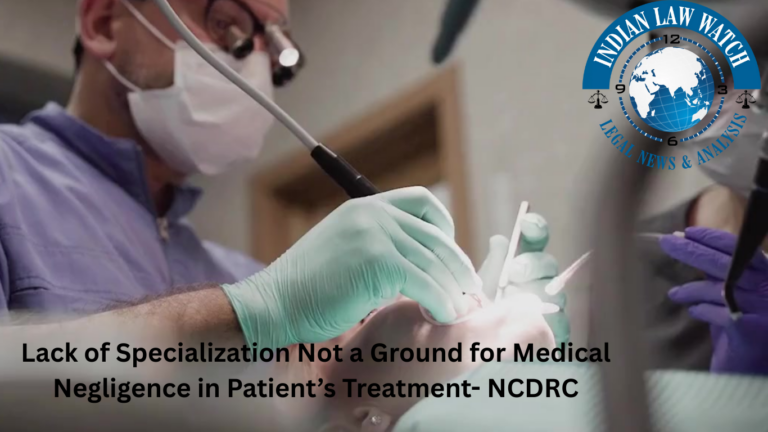

The Supreme Court of India expressed grave concern over the unchecked growth of unregulated allied healthcare educational institutions and has issued a stern warning to the Central Government, as well as State and Union Territory administrations, about the potential for coercive measures if the National Commission for Allied and Healthcare Professions (NCAHP) Act, 2021, is not implemented swiftly. The Chief Justice of India, D.Y Chandrachud, leading a three-judge bench, highlighted that despite the court taking up this matter in September 2023, the Act’s provisions still need to be enforced. The bench noted that only 14 states and union territories have established the required state councils under the Act
- The Supreme Court was concerned about the proliferation of illegal allied healthcare educational institutions and bodies.
- The court gave the Centre and state governments two months to implement the NCAHP Act.
- The court directed the Union Health Ministry to convene an online meeting with all the State Secretaries of the Ministry of Health and Family Welfare to create a roadmap for implementation.
- The court emphasised the need to establish professional councils at the national and state levels to enforce the law effectively.
About the Act
National Commission for Allied and Healthcare Professions (NCAHP) is the Indian regulatory body for allied and healthcare professionals (AHP). It covers all AHP not covered under the National Medical Commission, Dental Council of India, Indian Nursing Council, Pharmacy Council of India, etc., till 2021 and groups all into ten categories with the power to regulate education and professionals of all ten categories.
The National Commission for Allied and Healthcare Professions Act, 2021 defined “Allied health professionals” and “healthcare professionals” in India and placed them in the following categories:
- Medical Laboratory and Life Sciences
- Trauma, Burn Care and Surgical/Anesthesia-related technology
- Physiotherapy Professional
- Nutrition Science Professional
- Ophthalmic Sciences Professional
- Occupational Therapy Professional
- Community Care, Behavioural Health Sciences and other Professionals
- Medical Radiology, Imaging and Therapeutic Technology Professional
- Medical Technologists and Physician Associate
- Health Information Management and Health Informatic Professional
The National Commission for Allied and Healthcare Professions (NCAHP) Act, 2021, is a landmark legislation in India aimed at regulating and standardising the education and practice of allied and healthcare professionals. Here are the salient features of the Act:
- Establishment of the National Commission as a regulatory body to oversee and standardise the education and practice of various allied and healthcare professions across India.
- Creation of Professional Councils under the National Commission, each responsible for specific categories of allied and healthcare professions. These councils set standards for education, training, and professional conduct within their respective fields.
- Central and State Registers: Professionals must be registered to practice legally, and the registration process ensures they meet the required educational and professional standards.
- Standardisation of Education: The Act standardises the education and training curriculum for allied and healthcare professionals nationwide. It mandates common entrance exams and uniform educational standards to ensure consistency and quality in the training of professionals.
- Recognition of Foreign Qualifications: The Act allows for the recognition of qualifications obtained abroad, enabling professionals who have studied outside India to register and practice within the country, provided they meet the prescribed standards.
- Regulation of Professional Conduct: It establishes codes of ethics and disciplinary mechanisms to ensure that professionals adhere to high standards of practice.
- Promotion of Research and Development: The Act encourages research and development in allied and healthcare professions, aiming to continuously improve the quality of education, services, and patient care.
- Focus on Patient Safety
- Advisory Role: The National Commission will advise the central and state governments on allied and healthcare education, services, and policy formulation.
- Penalty provision: Practicing without registration or illegal source of qualifications is all liable under the qualification.
The NCAHP Act 2021 represents a significant step towards improving the standards and quality of allied and healthcare services in India. It will ensure that the country’s healthcare workforce is well-regulated, educated, and capable of delivering high-quality care.
The court said,
“The parliamentary legislation was intended to provide a legislative framework to protect the public interest against the proliferation of illegal institutional bodies. Despite the passage of three years since the enactment of the law, both the Union Government and the state governments have completely failed to discharge their statutory responsibilities.”
The Lok Sabha cleared the National Commission for Allied and Healthcare Professionals Bill 2021 on March 24. The bill seeks to set up a commission to regulate the allied healthcare sector and standardise training and qualifications nationwide. The Rajya Sabha passed the Bill on March 16.

Unchecked growth has now triggered the need for proper regulatory authority, and the Supreme Court has pressed for the law to be implemented immediately. The action of these regulators impacts both the sector’s operation and patient health





